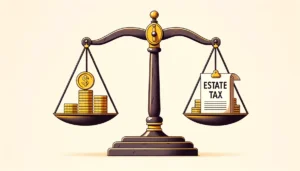How to trade for a Trump or Biden victory
While voters are weighing each party’s economic policies given declining inflation and a resilient, historical data shows that the market doesn’t correlate with politics. Nevertheless, elections themselves are newsworthy events which might move markets and provide trading opportunities. So with all the buzz surrounding a Trump vs Biden rematch, how will the 2024 presidential election affect the stock market?
Examining the historical data
Below is an analysis of stock market performance for each US presidential election back to 1928. The return is calculated using an index price from the day before the election to the day after. In cases where the outcome was not known immediately following the election, we used the date on which media outlets widely reported the winner.
| President | Party | Election Day | Return |
|---|---|---|---|
| Herbert Hoover | R | 11/6/1928 | 0.0% |
| Franklin D. Roosevelt | D | 11/8/1932 | 4.6% |
| Franklin D. Roosevelt | D | 11/3/1936 | -1.5% |
| Franklin D. Roosevelt | D | 11/5/1940 | 3.4% |
| Franklin D. Roosevelt | D | 11/7/1944 | 0.2% |
| Harry S. Truman | D | 11/2/1948 | 4.8% |
| Dwight D. Eisenhower | R | 11/4/1952 | -0.3% |
| Dwight D. Eisenhower | R | 11/6/1956 | 1.0% |
| John F. Kennedy | D | 11/8/1960 | -0.4% |
| Lyndon B. Johnson | D | 11/3/1964 | 0.0% |
| Richard Nixon | R | 11/5/1968 | -0.2% |
| Richard Nixon | R | 11/7/1972 | 0.6% |
| Jimmy Carter | D | 11/2/1976 | 1.2% |
| Ronald Reagan | R | 11/4/1980 | -1.7% |
| Ronald Reagan | R | 11/6/1984 | -0.3% |
| George H. W. Bush | R | 11/8/1988 | 0.2% |
| Bill Clinton | D | 11/3/1992 | 1.4% |
| Bill Clinton | D | 11/5/1996 | -2.5% |
| George W. Bush | R | 11/7/2000* | 1.6% |
| 12/13/2000 | 2.3% | ||
| George W. Bush | R | 11/2/2004 | -1.1% |
| Barack Obama | D | 11/4/2008 | 1.4% |
| Barack Obama | D | 11/6/2012 | 1.6% |
| Donald Trump | R | 11/8/2016 | 1.7% |
| Joe Biden | D | 11/3/2020* | 4.0% |
| 11/7/2020 | 1.2% | ||
| – | |||
| Average D | D | 1.2% | |
| Average R | R | 0.3% |
Analysis
Based on this data, major elections don’t have an outsized effect on the stock market. Most outcomes are well within the ordinary range of day-to-day stock market fluctuation. Here are some possible explanations for this phenomenon:
- Politics has little effect on long-term stock returns in general
- Investors predict the likely political outcomes of elections and their effects are “priced in” before the election
- Fiscal policy is less relevant than monetary policy (which is independent of Congress)
One caveat is that this analysis only examined an aggregate stock market index. Supposing that different politicians support different business sectors and industries, individual stocks may be more reactive to election results. In this case, gains and losses on individual stocks may cancel out broad effects to the market index.
Conclusion: Not a tradable event
Based on historical data, the 2024 presidential election itself shouldn’t have much of an effect on stock market indices, and plenty of experts agree . Of course, past performance is no guarantee of future results, and there may be surprising events that move markets.
Short term traders might prefer to look at other factors such as technical indicators or market sentiment rather than the election. Otherwise, trading opportunities may arise from individual stocks or industries rather than broad market indices. And on the flip side, long-term investors may find it prudent to maintain their strategies through Election Day itself.




